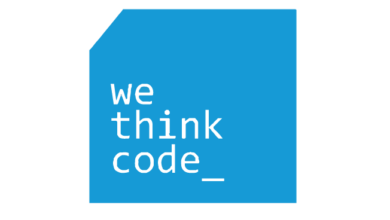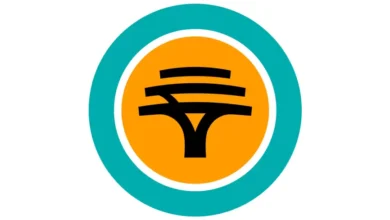Epilepsy, Inclusion And Education

WHAT IS INCLUSIVE EDUCATION
It is a vision of schools and other places of learning that are underpinned by the following beliefs:
– That all people can learn.
– That people who learn in different ways and at different rates can learn alongside one another and from each other.
– That we all have strengths and weaknesses, and all experience barriers to effective learning at times.
– That a child with a disability or any learning difficulty has the right to attend a school close to his or her home, in the company of his or her siblings and friends.
– That this will in turn create a more tolerant and caring society where people who are differently abled are empowered to do meaningful work and lead independent lives as far as possible.
– That many learners are handicapped not by their own differences or difficulties so much as by the inflexible system in which they are forced to live and learn.
WHY INCLUSIVE EDUCATION?
Until now, children with physical and intellectual disabilities have been placed in separate specialist schools. Whilst such schools do offer highly qualified teachers and specialised programs, children tend to become segregated from their neighbourhood, peers and from the opportunity to interact within the mainstream society. In areas where there are no special schools, children with disabilities have often remained at home, and are further deprived of education and opportunities for social interaction and stimulation.
WHAT IS NEEDED TO MAKE IT WORK?
– A full commitment to the philosophy of inclusion
– A culture of caring and respect towards everybody in the school
– Creative and flexible teachers
– A team of special needs advisers who can support individual schools and teachers where needed
– Parents who participate and who are actively involved
– A flexible curriculum that meets the needs of all children
– Assessments that focus on the strengths and specific needs of children with epilepsy, instead of their deficiencies.
WHAT ARE OUR RIGHTS IN TERMS OF ACCESSING INCLUSIVE EDUCATION?
Section 5 of the SA Schools Act (1996) states that
– A public school must admit learners and serve their educational requirements.
– The governing body of a public school may not administer any test related to the admission of a learner to a public school, or direct or authorise the principal of the school or any other person to administer such a test.
– In determining the placement of learners with special educational needs, the Head of Department and principal must take into account the rights and wishes of the parents of such learners.
– If any application is refused, the Head of Department must inform the parent in writing of such refusal and the reason therefore.
– Any learner or parent of a learner who has been refused admission to a public school may appeal against the decision.
Education White Paper 6 commits our education departments to building an inclusive education and training system.
White Paper 6 makes provision for:
– Strengthening of educational support services at district level as well as in schools
– Strengthening existing special schools and broadening their role to become resource centers that offer support services to “regular” schools
– The “piloting” and creation of “full service” schools which include learners with mild to moderate disabilities.
– Developing capacity of teachers in terms of curriculum development and assessment.
HOW TO GO ABOUT IT?
– Speak to parents of other children with similar difficulties and find out their experiences, suggestions re: schools, recommendations, etc.
– Phone to make an appointment to see the principal of your local / chosen school.
– Prepare your child for the interview and take your child along to the appointment.
– Know your rights. If necessary take another person along to support you. Outline your child’s strengths and weaknesses as well as what your expectations are regarding educational goals / social stimulation
– Ask what support your child can expect to receive from the school and outline what support you can offer.
– If you encounter any problems, contact the education department office in your area and ask for their support.
MYTHS REGARDING EPILEPSY AND EDUCATION.
Many people, wrongly believe that:
– Having an ordinary seizure kills brain cells.
– Children with epilepsy are of lower intellect than other children.
– Children with epilepsy need to attend special schools.
– Children with epilepsy are unable to learn.
– Children with epilepsy cannot cope with subjects such as math’s, science, etc.
– Children with epilepsy will miss too much school due to seizures and therefore won’t cope with the academic requirements.
EPILEPSY AND THE IMPACT ON BEHAVIOUR AND EMOTIONAL DEVELOPMENT
It is important to know that psychological and social problems are often more significant than the condition itself. This is mainly due to ignorance, fear and stigmatisation on the part of onlookers that cause greater distress than the condition itself.
EPILEPSY IN THE CLASSROOM
For the teacher:
As teachers we need to have knowledge about:
– Epilepsy
– What to do in the case of a seizures
– How to record times, duration and types of seizures
– To recognise pre seizure signals.
– Factors that may trigger a seizure
– What medication the child takes and be alert for possible side effects.
Tips for teachers
DO:
– Accept the child for what he/she is
– Foster a culture of acceptance in the classroom
– Ensure that you and all the children in the class/school receive adequate training regarding epilepsy and epilepsy management.
– Encourage participation in activities that improve the child’s self-image.
– Support the child and help him / her to develop confidence to deal with different situations.
– Concentrate on what the child can do rather what he can’t do.
DO NOT:
– Rush in to help unless the child obviously needs it.
– Restrict the activities of the rest of the class because of the child with epilepsy.
– Treat the child with epilepsy differently from the other children.
– Allow the child to think of him / herself as an invalid or use epilepsy as an excuse to avoid difficult situations e.g. did not do his/her homework.
– Be afraid to involve colleagues, parents and medical professionals in your classroom management.
For parents:
– Arrange a meeting with your child’s class teacher as soon as your child is placed at the school.
– Explain the condition of epilepsy and be willing to train the other pupils and staff about epilepsy.
– Focus on the handling of a seizure, triggers and types of seizures. Also stress that epilepsy is not contagious.
– State what you expect, but also what you are willing to contribute.
– Provide all the needed information regarding medication and obtain the teacher’s commitment to administer medication when needed.
– Explain that feedback will be forwarded to the medical professionals in order to assist the decisions regarding the child’s medical management.
– Show the teacher how to complete the epilepsy diary to record the seizures.
– Ask that your child be treated exactly the same as all the other pupils.
– If you need assistance, contact your local branch of EPILEPSY SOUTH AFRICA, as they would be able to do epilepsy training at the school.
This document has been made possible with the help from Western Cape Forum for Inclusive Education (Tel: Cape Town 021-6741422),





